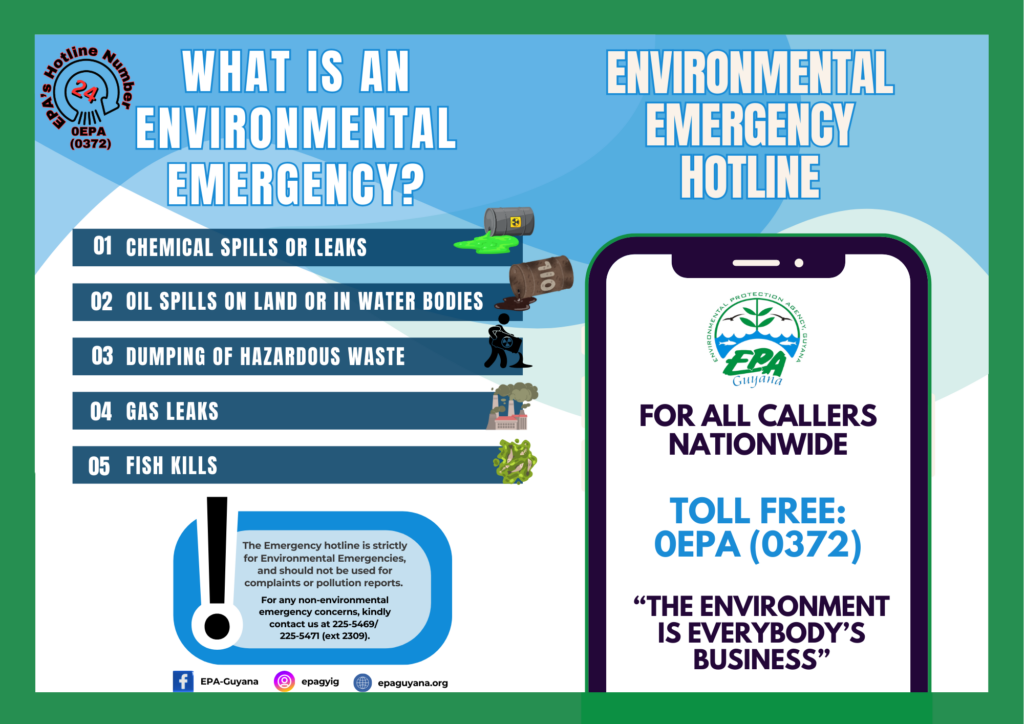- The transformation of Guyana to an oil producing country triggered changes in our development as a Regulatory body. As new and scaled-up projects took off, the demand for pollution control and environmental management increased. As such the Environmental Protection Agency (EPA) transformed and found flexible solutions to new and increasing demands on its services.At 24 years old, the Environmental Protection Agency (EPA), has come a long way. Moreover, the past two years the Agency has seen a transformation in its culture by investing heavily in our most valuable resource, our human capital, through aggressive recruitment, development of skills, and enhancing customer service. Employee development includes exposure to local and international training opportunities; and networking and collaboration with international organisations such as International Association of Impact Assessment (IAIA), International Atomic Energy Agency (IAEA), International Offshore Petroleum Environmental Regulators (IOPER) and the Air and Waste Management Association (AWMA).Other significant accomplishments over the last two years include the overhauling and restructuring of the Agency to accommodate the increased work load. For example, with the help of the World Bank, we have established an Oil and Gas Unit to comprise of 36 highly skilled employees to oversee the industry; and have similarly established other Units to oversee each sector of the economy.
In 2019, the Agency substantially improved accountability by bringing over 500 expired permits into compliance. The more than 130 million dollars in revenue generated by this effort was used to recruit 20 skilled staff, and increase our fleet of field ready vehicles from two to nine, allowing for greater compliance monitoring and enforcement.
Another major but timely development is the Agency 24-hour complaint hotline, we have also expanded our public awareness programmes covering new media outlets including a television show titled ‘The Environment Matters’ and the launch of the first ever Green Note magazine. In addition, we established a Central Registry to secure custody, accounting, and efficient processing of the voluminous amount of documents supporting the 2,000 projects.
It is the vision of the Executive director to establish an EPA office in every region by 2021, and revise the outdated 1996 Environmental Protection Act to consider the petroleum sector. Additionally, to develop a new course to address the post 2020 biodiversity agenda, and to implement the single-use plastics and mercury bans. Further to investigate in capacity building while tripling the staff to over 300 employees, and building our own fully furnished laboratory by 2022.


